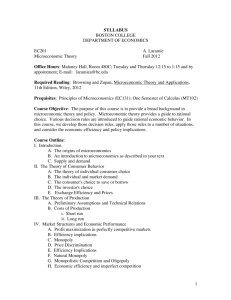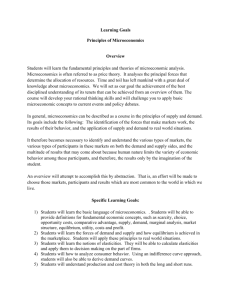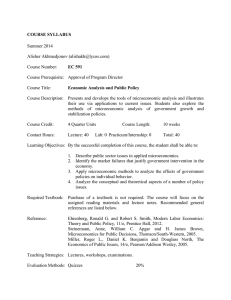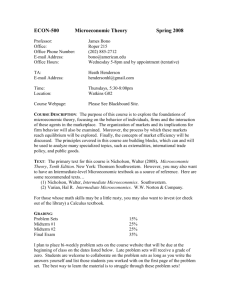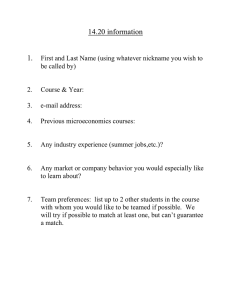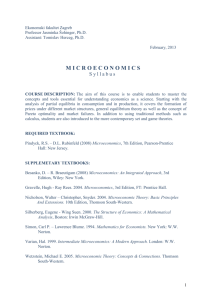Course Syllabus Microeconomics -- Economics 6610 -- Academic Year 2013
advertisement
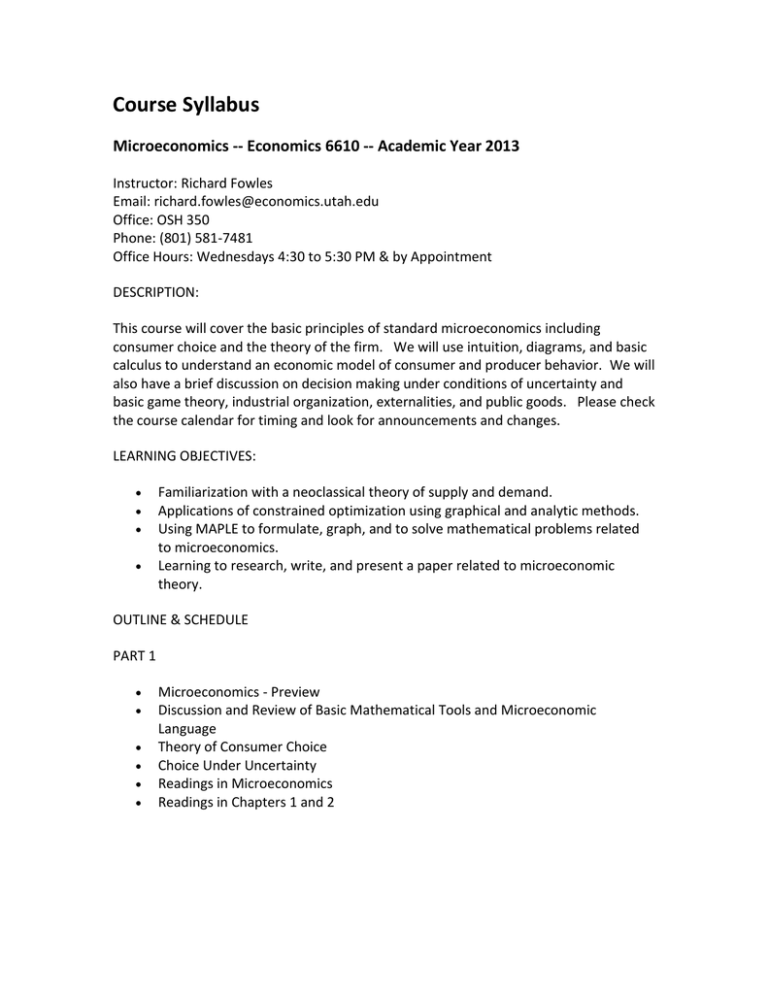
Course Syllabus Microeconomics -- Economics 6610 -- Academic Year 2013 Instructor: Richard Fowles Email: richard.fowles@economics.utah.edu Office: OSH 350 Phone: (801) 581-7481 Office Hours: Wednesdays 4:30 to 5:30 PM & by Appointment DESCRIPTION: This course will cover the basic principles of standard microeconomics including consumer choice and the theory of the firm. We will use intuition, diagrams, and basic calculus to understand an economic model of consumer and producer behavior. We will also have a brief discussion on decision making under conditions of uncertainty and basic game theory, industrial organization, externalities, and public goods. Please check the course calendar for timing and look for announcements and changes. LEARNING OBJECTIVES: Familiarization with a neoclassical theory of supply and demand. Applications of constrained optimization using graphical and analytic methods. Using MAPLE to formulate, graph, and to solve mathematical problems related to microeconomics. Learning to research, write, and present a paper related to microeconomic theory. OUTLINE & SCHEDULE PART 1 Microeconomics - Preview Discussion and Review of Basic Mathematical Tools and Microeconomic Language Theory of Consumer Choice Choice Under Uncertainty Readings in Microeconomics Readings in Chapters 1 and 2 PART 2 Production and Costs Profit Maximization The Market Demand Curve The Maple Programming Language Concepts of Optimal Labor Choice Effects of Changes in Input Prices Short-Run Firm Behavior Long-Run Firm Behavior Readings in Chapters 3 through 7 PART 3 Industrial Organization Game Theory Oligopoly Monopoly Readings in Chapters 11 through 15 PART 4 Market Failures Externalities Social Choice Public Goods Public Decision Making PART 5 Class presentations GRADING Exams – 50% Term Paper & Presentations – 50% READINGS Walter Nicholson, Microeconomic Theory, Basic Principles and Extensions. Earlier editions are readily available online and a copy of the book will be available at the library. Readings from the Working Papers at: http://w
